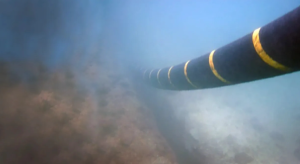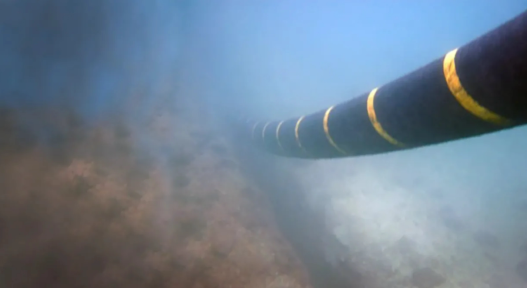
HUTHIS THREATEN TO SABOTAGE SUBMARINE CABLES IN THE RED SEA
By Óscar Ruiz / Escudo digital
Recent threats by the Houthis to attack undersea internet and financial data transmission cables in the Red Sea have raised great concern, due to their potential to severely disrupt not only local but also global communications and economies. These cables, which serve as critical digital infrastructure, contribute 17% of the world’s internet traffic, as well as vast amounts of financial data globally.
The interception on a Houthi-linked Telegram channel of a map of the cables running along the bed of the Red Sea set off all the alarm bells. The image was accompanied by the message, “There are maps of international cables connecting all regions of the world through the sea. It seems that Yemen is in a strategic location, as internet lines connecting entire continents, not just countries, pass close by.”
And the Houthis are not without reason as Yemen’s strategic location, near key maritime transit points and undersea cables, makes this threat a particular concern for major powers such as China and the United States, both of which are vying for control of this network of undersea communication cables and infrastructure.
Although the cables have so far remained secure (more due to the Houthis’ lack of technological capabilities and means than lack of motivation and desire), there is a possibility that, given time and opportunity, the Houthis will adapt their maritime tactics to target this vital communication infrastructure. Attack methods such as armed divers or naval mines to damage the cables are not ruled out, as demonstrated in a 2013 incident near the port of Alexandria, where divers attempted to cut a submarine cable, demonstrating the possibility that individuals without special equipment or training could carry out similar sabotage.
The increasingly aggressive military campaign by the Houthis against merchant and also military ships in the Red Sea (in particular any ship transiting to Israel, regardless of nationality), and the growing tension in the region due to the war in Gaza, have brought the vulnerability of these cables to the economic security fore. Added to this is the declaration of Iranian-backed groups such as Hezbollah in Lebanon and pro-Iranian militias in Iraq, suggesting possible sabotage of these cables, which would mark a further evolution from a regional to a global conflict, if it is not already one.
The impact of any damage to these cables could be enormous, denying internet access to vast areas and causing severe economic disruption to entire countries. In addition, it could cut off military or government communications, as the cables are the only infrastructure with sufficient bandwidth to accommodate terabytes of military sensor data essential to ongoing operations.
The Houthi threat to undersea internet cables in the Red Sea not only poses a risk to regional stability, but also poses a significant challenge to the security of global digital infrastructure and the military and economic operations that depend on it. Nations around the world must be vigilant and prepared to protect this critical infrastructure from potential attacks.
————
This news was originally published in Escudo digital (associated with EditoRed), with whose authorization we reproduce it here.



